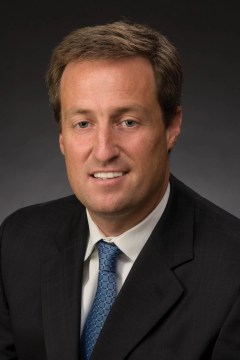
Piedmont Healthcare has named a Seattle hospital executive as its new president and CEO.
Kevin Brown, chief executive officer of Swedish Health Services, will replace Tim Stack, who was CEO of Atlanta-based Piedmont for more than a decade before his death last year.
Brown, 46, will take over a nonprofit system that expanded under Stack to five hospitals, helping to spark a hospital consolidation trend in metro Atlanta.
Piedmont also recently announced that it will launch a health insurance plan in conjunction with WellStar Health System. The two systems have formed a collaboration to develop new health care delivery models.
“I’m very excited,’’ Brown said in an interview Monday with GHN. “Piedmont is an organization that has a national reputation for delivering quality, safe care. It’s an honor to lead such a prestigious organization.’’
Brown, who will take over in May, said he does not know details of Piedmont’s insurance plan, but added that “strategically, it’s right in line with where health care is going.’’
Brown has some insurance experience: He spent five years in the 1990s working as part of the startup management team for PacifiCare of Washington, a health insurer.
“Kevin is a great fit for Piedmont,” Dr. Patrick Battey, who has been serving as interim CEO for the system since Stack’s death, said in a statement.
Brown “has a long track record of promoting partnerships with physician leaders and has demonstrated a commitment to keeping the patient at the center of organizational decisions with a relentless focus on quality and safety. The fact he comes from an area on the forefront of health care reform also is very
valuable,” said Battey, who also chairs the Piedmont Healthcare board of directors
Under Stack’s leadership, Piedmont pushed forward with “payment reform,’’ where quality of care, not quantity of procedures, is emphasized and rewarded financially.
And Piedmont formed an accountable care organization with insurer Cigna. An ACO is a grouping of hospitals and doctors that aims to coordinate medical services for patients.
“Regardless of the Affordable Care Act, health care has to continue to improve quality and safety as well as access,’’ Brown told GHN. He added that the cost of care must be reduced. A health organization, he said, “must deliver a better product at a lower cost.’’
Like Piedmont, Swedish has five hospitals and operates freestanding emergency departments and ambulatory care centers. Swedish Medical group runs a network of more than 70 primary care and specialty clinics in the Puget Sound area.
Last year, Swedish completed an affiliation agreement with Providence Health & Service, which operates 27 hospitals throughout the three West Coast states, plus Alaska and Montana. Brown then became CEO of Swedish.
Brown said of hospital consolidation, “We have to make it easier for the consumer to access health care. It will require partnerships.’’ The patient has to be the center of these initiatives, he added.
Over the past two years, Piedmont has been a staunch opponent of the state provider fee enacted in 2010.
The fee brought an increase in payments to Georgia hospitals for services rendered to Medicaid patients. But depending on their patient bases, some hospitals have benefited financially through the tax while others have suffered financially. Piedmont Hospital in Buckhead has been a major loser under the 2010 formula.
This year, a compromise was reached within the hospital industry to implement a new formula to help private hospitals such as Piedmont even out their losses. A bill that facilitated renewal of the fee, plus the new mechanism, was signed into law by Gov. Nathan Deal.
